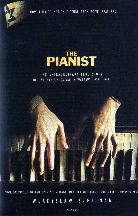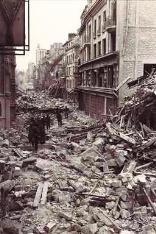

































Summary Copyright © 2008 by
Robert Wayne Atkins, P.E.
All Rights Reserved.
The following summary is for fair use and educational purposes only.
 By 31 August 1939 everyone in Warsaw had been sure for some time that war with the Germans was inevitable. Only incorrigible optimists had still cherished the delusion that Poland's determined stance would deter Hitler at the last moment. (22)
By 31 August 1939 everyone in Warsaw had been sure for some time that war with the Germans was inevitable. Only incorrigible optimists had still cherished the delusion that Poland's determined stance would deter Hitler at the last moment. (22) The book contains the true story of how one young Jewish man survived World War II. He vividly describes the events he saw with his own eyes. He tells where he was forced to hide, who helped him and who betrayed him, and how the constant mental torture and slow starvation took a dreadful toll on his body. In addition to describing the sad fate of his fellow Jews, he also describes the mass executions of all the non-Jewish residents of his city when the Germans realized they were going to lose the war. The Germans did not want to leave any witnesses behind to tell anyone the unspeakably inhuman activities they had willingly and eagerly participated in when they believed they were invincible.
The book contains the true story of how one young Jewish man survived World War II. He vividly describes the events he saw with his own eyes. He tells where he was forced to hide, who helped him and who betrayed him, and how the constant mental torture and slow starvation took a dreadful toll on his body. In addition to describing the sad fate of his fellow Jews, he also describes the mass executions of all the non-Jewish residents of his city when the Germans realized they were going to lose the war. The Germans did not want to leave any witnesses behind to tell anyone the unspeakably inhuman activities they had willingly and eagerly participated in when they believed they were invincible.
